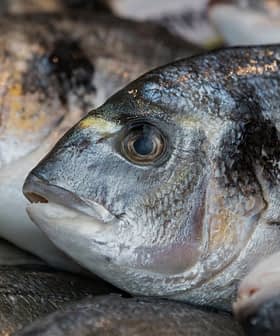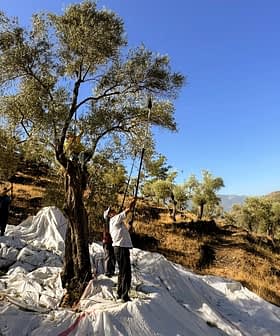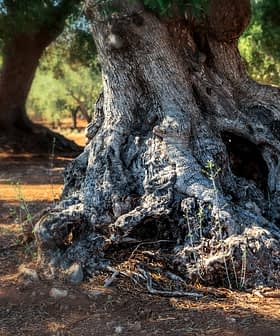Nearly One-Third of Wild Tree Species Are Threatened with Extinction, Report Warns
Over the past 300 years, the forested areas on our planet have shrunk by 40 percent, researchers found.
 Nepal
Nepal One in three trees in forests worldwide are at risk of extinction, with over 17,500 wild tree species currently under threat, according to a report by the Botanic Gardens Conservation International. Human activities such as deforestation, logging, and climate change are the main threats to wild trees, and urgent conservation action is needed to protect these vital species and preserve biodiversity.
One in three trees in the forests and woodlands of the planet face extinction, a report published by the Botanic Gardens Conservation International (BGCI), a non-profit charity, has found.
More than 17,500 wild tree species are currently under threat, the report stated, which is twice the number of endangered mammals, birds, amphibians and reptiles put together.
If we lose the trees, we lose everything: we lose the birds, the animals, the plants and fungi that depend on it.
The figure may be even higher as well since many tree species are recorded as “not-threatened” by scientists due to a lack of adequate scientific research.
See Also:Europe Announces Plan to Plant 3 Billion Trees by 2030Forests have already lost 142 known tree species, while another 442 are on the brink of becoming extinct with only 50 or fewer individual trees remaining.
“This report is a wake-up call to everyone around the world that trees need help,” said Paul Smith, the secretary-general of BGCI.
Brazil, which boasts the richest plant diversity in the world, stands out as the country with the most endangered types of trees, 1,788, followed by China with 890 wild tree species under threat.
Tropical islands, including Madagascar, also exhibit a high level of threatened trees, and even European countries are starting to lose segments of their wild tree species.
Wild trees are mostly threatened by human activities such as forest clearance to expand agricultural land, livestock grazing and farming, timber logging and naturally occurring or human-caused wildfires. Other emerging threats are climate change and extreme weather events, which can fuel phenomena including rising sea levels.
Oak trees, ebony, rosewood, magnolias and dipterocarps, a large tropical tree, among others, are all in great peril.
“We have nearly 60,000 tree species on the planet, and for the first time we now know which of these species are in need of conservation action, what are the greatest threats to them and where they are,” said Malin Rivers, a researcher at BGCI.
The scientists also stressed the significance of tree species and the important role they play in nature.
“For a healthy world, we need tree species diversity,” said Sara Oldfield of the International Union for the Conservation of Nature, who contributed to the report.
“Each tree species has a unique ecological role to play,” she added. “With 30 percent of the world’s tree species threatened with extinction, we need to urgently scale up conservation action.”
Another important parameter to take into account in the struggle to protect wild trees is “tree blindness,” described as the obliviousness people exhibit when it comes to the irreversible loss of different kinds of species.
“Most people associate species of extinction with beautiful animals like tigers or rhinos,” said Emily Beech, another report contributor.
“More money is being spent on the preservation of animals than on trees,” she added. “But what most people don’t realize is that if we lose the trees, we lose everything: we lose the birds, the animals, the plants and fungi that depend on it.”
Over the past 300 years, the forested areas on the planet have shrunk by 40 percent and 29 countries have already lost more than 90 percent of their forest cover.
Action is needed to avert the decline of wild trees, the report warned, including funding to preserve the tree species, education to achieve reforestation in deforested areas, and carefully designed planting programs to increase the populations of trees at risk.
Share this article









